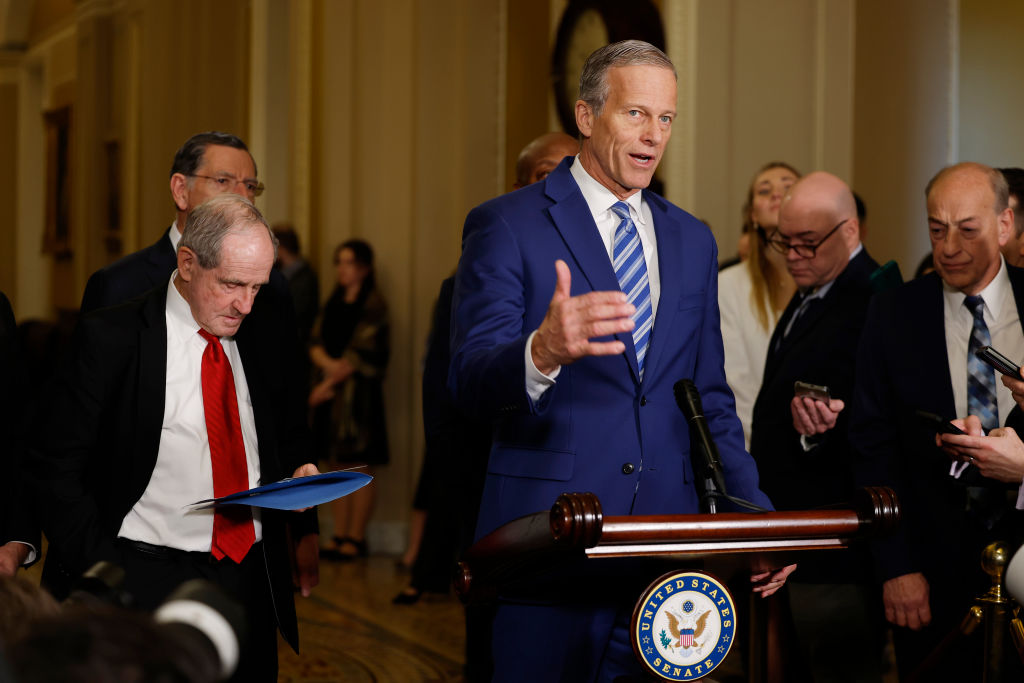WASHINGTON—Senate Majority Leader John Thune (R-S.D.) on Feb. 4 said that the upper chamber will soon bring legislation to repeal regulations introduced by the Biden administration during its final days in office.
Republicans and some Democrats have criticized the Biden administration for introducing federal regulations related to its political agenda on climate, gender equity, labor relations, and employment rules after President Joe Biden lost the 2024 presidential election.
The Congressional Review Act (CRA) is a federal law that permits both houses of Congress to pass joint resolutions repealing regulations issued within the previous 60 days. Such resolutions are not subject to the Senate’s cloture requirement of 60 votes to end a filibuster, though they must be presented to the president for his signature to take effect. During his first administration, President Donald Trump signed many such resolutions repealing regulations issued by the Obama administration—and will likely do so again.
“We have 10 or 15 potential CRAs that we’re reviewing and looking at,” said Thune in response to a question from The Epoch Times at a press conference. “There’s a lot of consideration being given right now to which candidates are eligible for CRAs and how to prioritize them. Be assured that we will use our time, when we’re not working on nominees, to do everything we can to repeal [the Biden administration’s regulations].”
Since the beginning of Trump’s new term, the Senate has devoted most of its time to considering his Cabinet nominees save for the passage of one bill, the Laken Riley Act, that Trump signed into law.
During its final days, the Biden administration published several “final rules”—the last stage of the regulatory process under the Administrative Procedure Act (APA)—that modified the H-1B non-immigrant visa program for temporary specialty workers and rules for F-1 status international students, imposed new standards for bulk data access by countries of concern, and banned credit rating agencies from collecting medical debt information. These rules, which came into effect within the previous 60 days, could be subject to CRA repeals.
Other rules imposed by Biden beyond the 60-day threshold—such as those pertaining to tailpipe emissions and electric vehicles—are not subject to the CRA process. In their case, Congress would have to pass new laws repealing them subject to the Senate’s 60-vote cloture requirement, or the Trump administration would have to undertake the APA’s notice-and-comment process to repeal the rules—which would likely be subject to litigation by interest groups opposed to their repeal.
Any CRA repeal resolutions passed by the Senate will need to be passed by the House before being presented to Trump.
House Speaker Mike Johnson’s office did not immediately respond to a request for comment.














